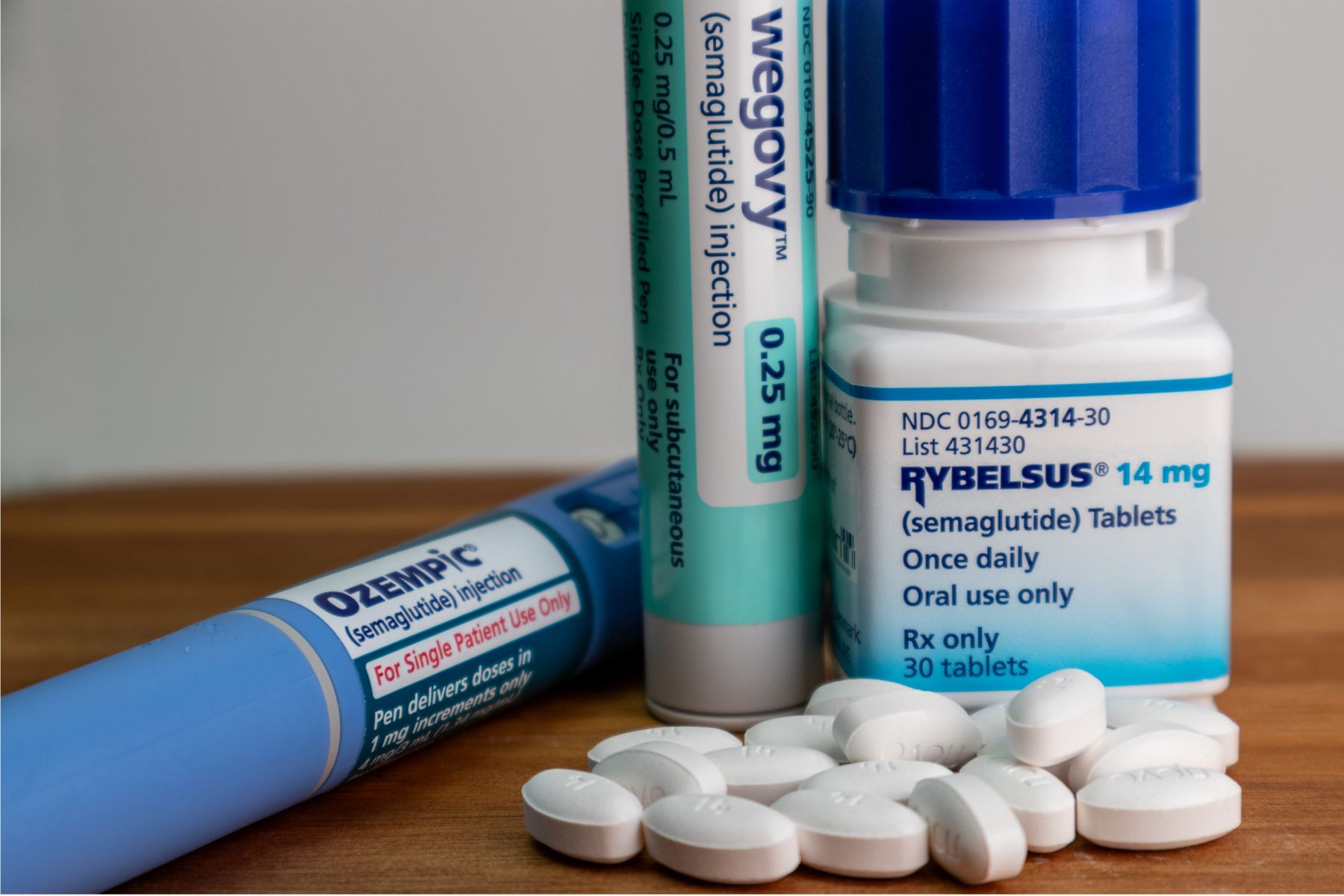Ozempic and Wegovy: Effects on Mental Health and the Link to Emotional Abuse and Avoidance
This will explore the impact of Ozempic and Wegovy on mental health, the psychological challenges that may arise, and the deeper connection between weight-related struggles, emotional abuse, avoidance, and self-worth.
by Pamela Madsen |
In recent years, medications like Ozempic and Wegovy have gained widespread attention for their effectiveness in managing type 2 diabetes and supporting weight loss. While these GLP-1 receptor agonists have shown remarkable results in physical health, an important conversation is emerging about their effects on mental health. As a licensed professional counselor in Atlanta, I often work with individuals who have complex relationships with food, body image, and emotional health—many of whom have also experienced emotional abuse and avoidance. This explores the impact of Ozempic and Wegovy on mental health, the psychological challenges that may arise, and the deeper connection between weight-related struggles, emotional abuse, avoidance, and self-worth.
Understanding Ozempic and Wegovy
What Are Ozempic and Wegovy?
Ozempic (semaglutide) is a medication primarily prescribed for managing type 2 diabetes, while Wegovy, which contains the same active ingredient, is FDA-approved for chronic weight management. Both medications work by mimicking the GLP-1 hormone, which regulates blood sugar, insulin, and appetite. Many individuals have experienced significant weight loss while on these medications, which has sparked a surge in their use for weight-related concerns. However, as with any medication, there are both physical and psychological effects that need to be considered.
The Psychological Effects of Ozempic and Wegovy
While these medications are largely praised for their physical benefits, their mental health effects are increasingly coming under scrutiny.
1. Mood Changes and Emotional Shifts
Some users report experiencing mood swings, anxiety, or depressive symptoms while taking these medications. The exact reason behind this is not entirely understood, but researchers speculate that it could be due to:
- Changes in appetite and reward systems: Food is deeply tied to emotional regulation for many people. When appetite is suppressed, some individuals may feel emotionally disconnected or struggle with unresolved emotional distress.
- Hormonal fluctuations: GLP-1 receptor agonists influence brain chemistry, which may contribute to changes in mood.
- Metabolic shifts: The body undergoes significant changes with rapid weight loss, which can affect both energy levels and emotional stability.
2. Increased Anxiety and Body Image Concerns
For individuals with a history of body dysmorphia, disordered eating, or low self-esteem, rapid weight loss can amplify anxiety rather than relieve it. Some common psychological experiences include:
- Fear of regaining weight, leading to obsessive behaviors around food and exercise.
- Feeling disconnected from one’s body due to sudden physical changes.
- Pressure to maintain weight loss, which may lead to perfectionism and self-criticism.
3. Depression and Emotional Numbness
Interestingly, some individuals on Ozempic and Wegovy report experiencing emotional numbness - a sense of detachment from their feelings, relationships, or even personal achievements. This phenomenon is similar to what occurs in individuals who have survived emotional abuse and avoidance-based coping patterns.
The Link Between Emotional Abuse, Avoidance, and Weight Struggles
Many people who turn to weight-loss medications have longstanding struggles with food, self-worth, and emotional pain—often stemming from past trauma or emotional abuse.
1. Emotional Abuse and Body Image
Emotional abuse can take many forms, but it often involves constant criticism, gaslighting, manipulation, or neglect. Many individuals who have endured emotional abuse—whether in childhood or adult relationships—internalize negative beliefs about their worth, appearance, and identity. Common messages from an abusive environment may include:
- “You’ll never be good enough unless you lose weight.”
- “No one will love you if you look like that.”
- “You should be ashamed of your body.”
Over time, these beliefs become deeply ingrained, leading individuals to associate their value with their weight. This can drive a relentless pursuit of weight loss—even at the cost of their mental and emotional well-being.
2. Avoidance as a Coping Mechanism
When emotional pain becomes overwhelming, avoidance can feel like the safest response. People may avoid confronting painful emotions by:
- Using food for comfort (emotional eating).
- Obsessively dieting or exercising to maintain control.
- Detaching from emotions altogether (emotional numbness).
For some, medications like Ozempic and Wegovy may become part of this avoidance cycle. Rather than addressing the root causes of body image struggles or self-worth issues, individuals may rely solely on weight loss as a solution—only to find that the emotional pain remains.
Healing Beyond Weight Loss: A Holistic Approach
If you are using Ozempic or Wegovy—or considering it—it’s essential to prioritize mental health alongside physical health. Here are some key steps for maintaining emotional well-being:
1. Cultivate Self-Compassion
Healing from emotional abuse and self-criticism requires self-compassion. Remind yourself that:
- Your worth is not defined by your weight.
- Healing is a process, not a destination.
- You deserve kindness and care from yourself.
2. Address Emotional Avoidance
Rather than avoiding painful emotions, work towards gently acknowledging and processing them. Therapy, journaling, and mindfulness practices can help reconnect you with your emotions in a safe and healthy way.
3. Seek Professional Support
If you are experiencing emotional numbness, depression, or anxiety while taking these medications, seeking mental health support is crucial. A therapist can help you:
- Navigate emotional shifts related to weight loss.
- Heal from past emotional abuse.
- Develop a healthier relationship with food and body image.
4. Practice Mindful Eating and Emotional Awareness
Rather than relying solely on medications, consider integrating mindful eating practices:
- Pay attention to hunger and fullness cues.
- Notice emotional triggers for eating.
- Engage with food in a way that feels nourishing, not restrictive.
5. Build a Holistic Self-Care Routine
Self-care should extend beyond weight management. Prioritize activities that nurture mental, emotional, and spiritual well-being, such as:
- Movement that feels joyful, not punishing (e.g., yoga, dancing, walking).
- Engaging in creative or expressive activities.
- Practicing relaxation techniques like deep breathing or meditation.
Final Thoughts
Ozempic and Wegovy have the potential to positively impact physical health, but their mental health effects should not be ignored. For individuals with a history of emotional abuse, self-worth struggles, or avoidance coping mechanisms, rapid weight loss can unearth deep-seated emotional challenges. If you recognize yourself in this journey, know that you are not alone. Healing requires more than just a number on the scale—it involves emotional growth, self-compassion, and holistic well-being. As a licensed professional counselor in Atlanta, I encourage anyone navigating these challenges to seek support and guidance. You deserve to feel emotionally and physically well—not just in terms of weight loss, but in your overall mental and emotional health. If you need support on your journey, I am here to help. Reach out today to start your healing process.






